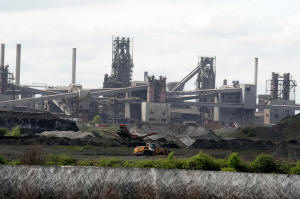|
The
issue has dominated British politics since Saturday, when Prime
Minister Keir Starmer recalled lawmakers from their spring
recess so Parliament could pass emergency legislation allowing
the government to take operational control of British Steel.
That move was spurred by reports that the company’s owners,
China’s Jingye Group, were trying to shut down steelmaking
operations in Scunthorpe, northern England, by starving the
plant of the iron ore and coking coal needed to keep the blast
furnaces operating. That raised the prospect that Britain would
lose its last plant capable of making high-quality steel from
scratch because once blast furnaces are shut down it is
difficult and expensive to restart them.
The Department for Business and Trade said shipments of the raw
materials that had been waiting at the port of Immingham will be
unloaded on Tuesday after the government agreed to pay for them.
A separate shipment is on the way from Australia after the
government resolved a legal dispute with Jingye.
“After intensive work over the weekend, the government has
secured coke and iron ore pellets for the blast furnaces and is
confident there will be enough materials to keep the furnaces
burning,” the department said in a statement.
While Jingye remains the owner of British Steel, the government
has said temporary nationalization is likely as it looks for
other investors to rescue the company.
A spokesman for China’s Foreign Ministry on Monday warned
Britain to treat Jingye fairly and avoid “politicizing and
over-securitizing” the issue, “so as not to affect the
confidence of Chinese enterprises in investing and cooperating
in the U.K.”
All contents © copyright 2025 Associated Press. All rights reserved

|
|




